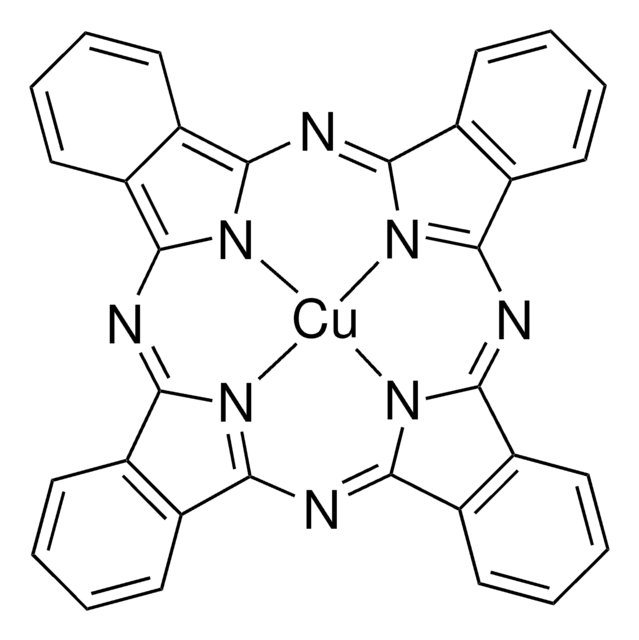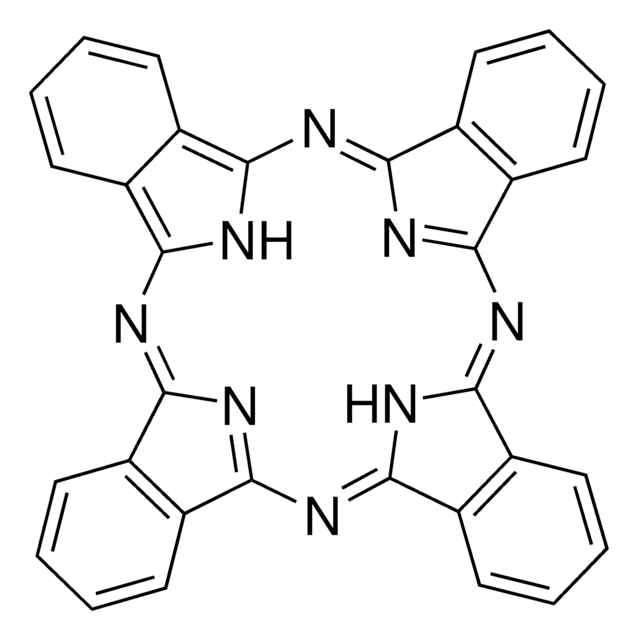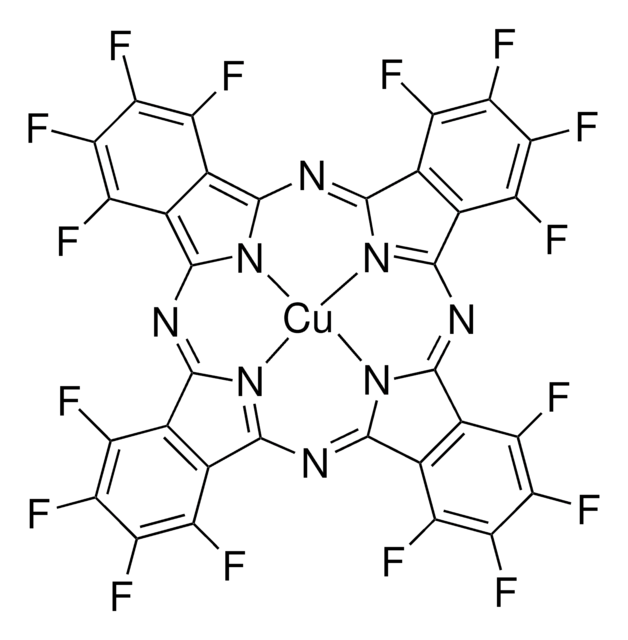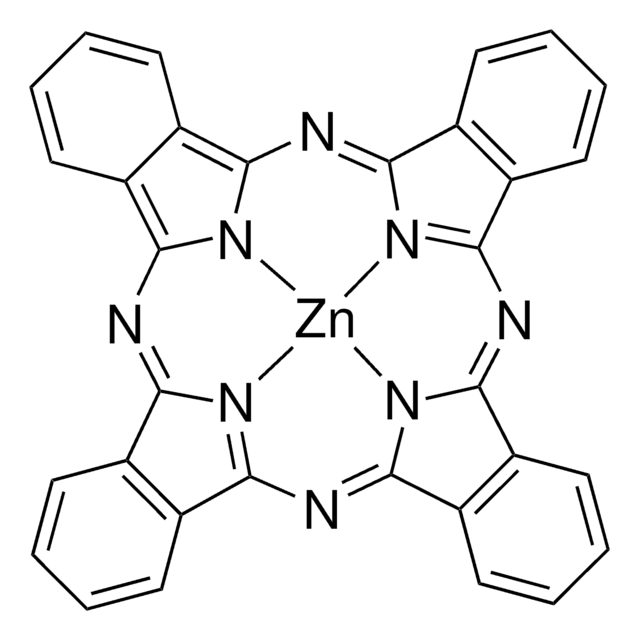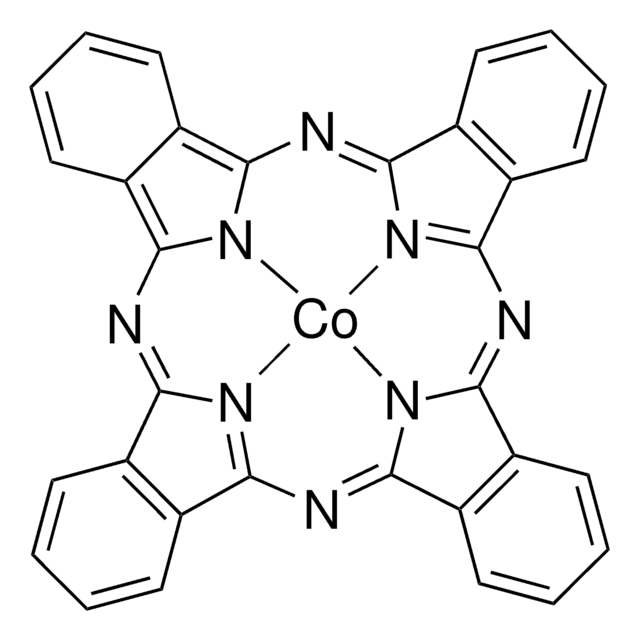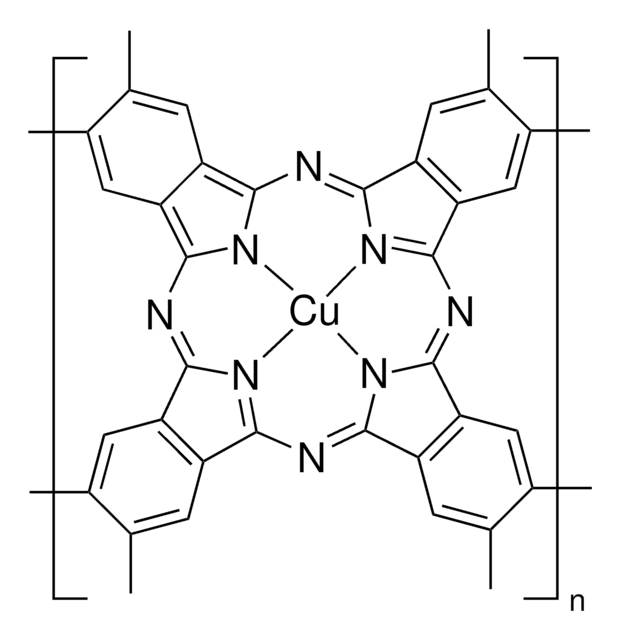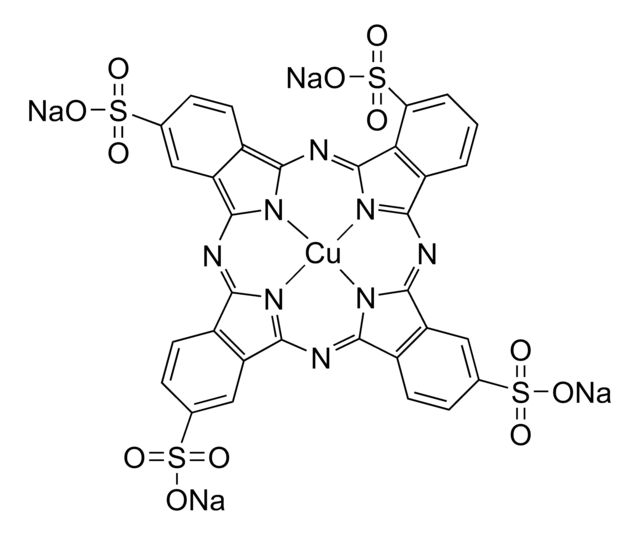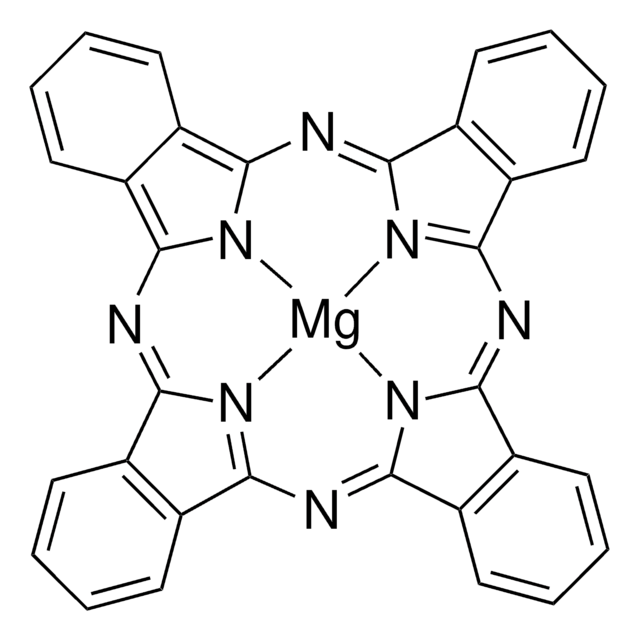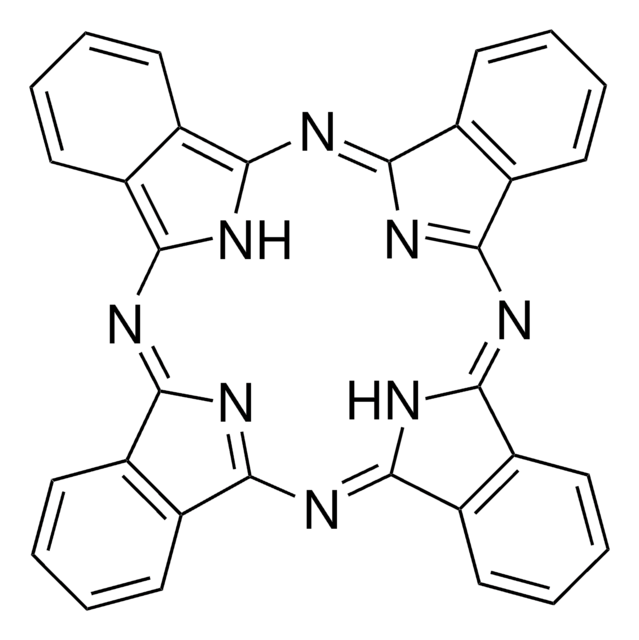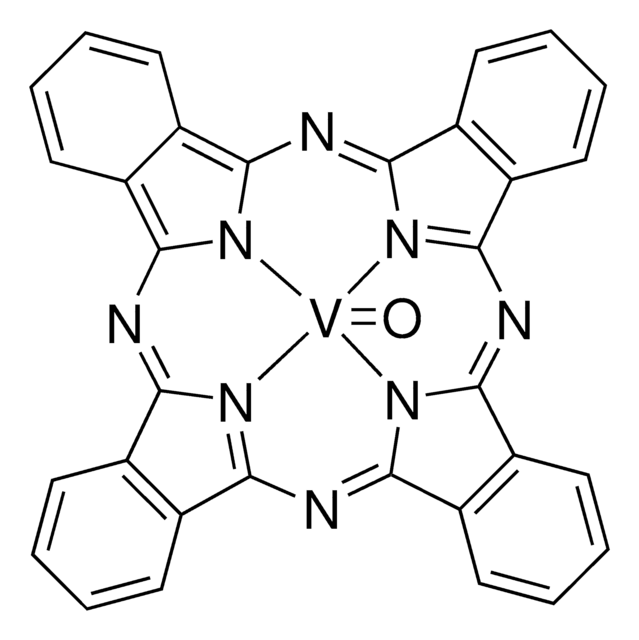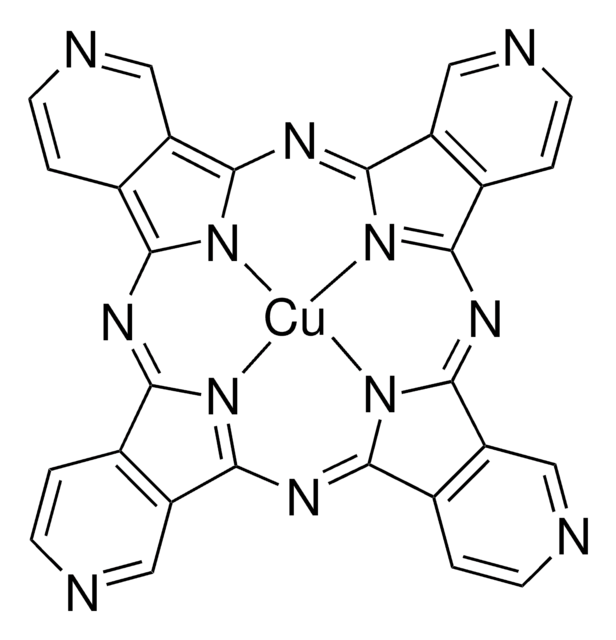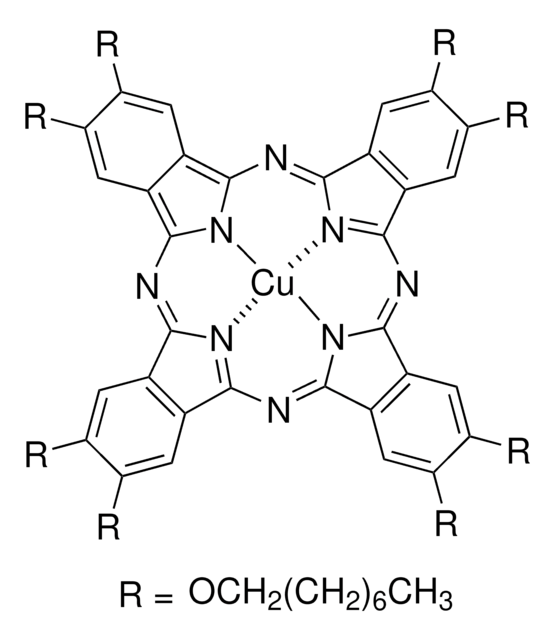546674
Copper(II) phthalocyanine
sublimed grade, Dye content 99 %
Synonym(s):
CuPc, Phthalocyanine blue, Pigment Blue 15
About This Item
Recommended Products
grade
sublimed grade
composition
Dye content, 99%
λmax
678 nm
fluorescence
λem 404 nm
Orbital energy
HOMO 5.2 eV
LUMO 3.5 eV
OLED Device Performance
ITO/CuPc/NPD/Alq3/C60/Mg:Ag
ITO/CuPc/NPD/Alq3/LiF/Al
ITO/CuPc/NPD/CBP:FIrpic (6%)/BAlq3/LiF/Al
OPV Device Performance
ITO/CuPc/PTCDA/In
ITO/PEDOT:PSS/CuPc/C60/BCP/Al
SMILES string
c1ccc2c(c1)C3=NC4=[N@@H]5C(=Nc6n7c(N=C8c9ccccc9C%10=[N@@H]8[Cu]57N3C2=N%10)c%11ccccc6%11)c%12ccccc4%12
InChI
1S/C32H16N8.Cu/c1-2-10-18-17(9-1)25-33-26(18)38-28-21-13-5-6-14-22(21)30(35-28)40-32-24-16-8-7-15-23(24)31(36-32)39-29-20-12-4-3-11-19(20)27(34-29)37-25;/h1-16H;/q-2;+2
InChI key
XCJYREBRNVKWGJ-UHFFFAOYSA-N
Looking for similar products? Visit Product Comparison Guide
Related Categories
General description
Application
Storage Class Code
11 - Combustible Solids
WGK
nwg
Flash Point(F)
Not applicable
Flash Point(C)
Not applicable
Personal Protective Equipment
Choose from one of the most recent versions:
Already Own This Product?
Find documentation for the products that you have recently purchased in the Document Library.
Customers Also Viewed
Articles
The conductivity of organic semiconductors can be increased, and the barriers to charge-carrier injection from other materials can be reduced, by the use of highly reducing or oxidizing species to n- or p-dope, respectively, the semiconductor.
Plexcore® organic conductive inks are electronic grade inks formulated for use in the hole injection layers of OLEDs.
Sublimed materials for organic electronic devices such of OFETs and OTFTs allow the achievement of better electronic properties, and may help increase a device’s lifetime.
Professor Shinar (Iowa State University, USA) summarizes the developments of a variety of sensor configurations based on organic and hybrid electronics, as low-cost, disposable, non-invasive, wearable bioelectronics for healthcare.
Our team of scientists has experience in all areas of research including Life Science, Material Science, Chemical Synthesis, Chromatography, Analytical and many others.
Contact Technical Service